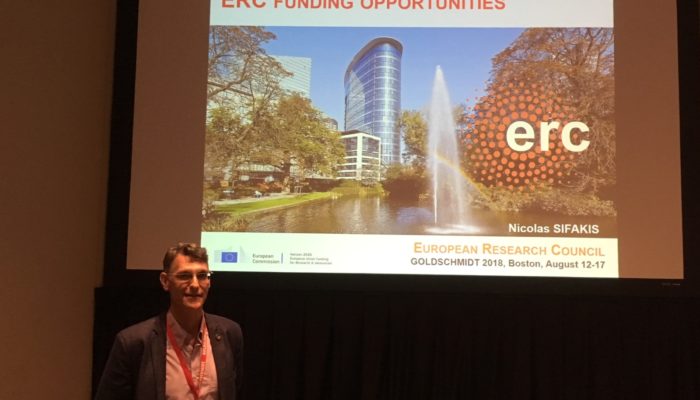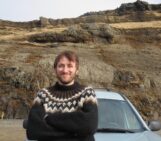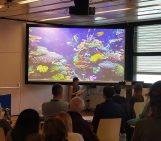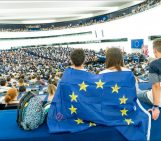
The European Seconded National Expert programme is a fantastic opportunity for scientists who are currently working in a national, regional or local public administration of an EU member state or an intergovernmental organisation to gain experience working within a European policy institution. In most cases, secondments are between six months and four years during which time the Seconded National Expert works for the EU institution that they applied for while being paid by their home institution. As well as their regular salary, experts are generally entitled to a daily subsistence allowance and a monthly allowance paid by the EU institution during the period of secondment. Secondments are beneficial for both sides, providing EU institutions with external expertise while also allowing the expert to broaden their skills and knowledge which they can then take back to their home institution.
While the Secondment Programme has benefits for everyone involved, many scientists are unaware of the programme or unsure about how to apply. This month’s GeoPolicy blog post features an interview with Nicolas Sifakis, a scientist and former Seconded National Expert who is currently working for the European Research Council Executive Agency (ERCEA), about his experience as a seconded expert and his motivation for applying. You’ll also find some information about ECREA’s open call for national experts and how to apply toward the end of this blog post.
Hi Nicolas! Thanks for taking the time to answer some questions. Firstly, can you tell us a bit about your background?
Certainly! I am an engineer by training with a specialisation in remote sensing and atmospheric science. While completing my PhD in Paris, I was assigned the coordination of the European Environment Agency’s CORINE Land Cover, then the largest remote sensing programme worldwide. Later, I undertook my postdoctoral research at the EU Commission’s Joint Research Centre in Ispra following which I joined the National Observatory of Athens. I joined NASA’s Environment and Health Program at the Goddard Space Flight Center in 2001 and prior to my secondment, I was Research Director at the National Obervatory of Athens in Greece.
What was your motivation for applying?
The financial crisis struck Greece in 2012 when I was working as the Research Director at the National Observatory of Athens. It seriously impacted research funding and cut already low civil servants’ salaries by 40%. At that moment, I started looking for job openings abroad and grasped the opportunity to apply for a Seconded National Expert position announced by the ERCEA in Brussels. So, on the one hand, my motivation was financial and family-oriented but on the other, it allowed me to continue working within my field and kept me close to the scientific community.
What was life like as a Seconded National Expert?
I was appointed as a scientific officer to the scientific department of the ERCEA and was assigned to manage the selection of proposals and follow-up of grants within panels on Chemistry (PE5), Engineering (PE8) and Earth Science (PE10), which best fitted my background. The best thing about my secondment was my involvement with the European Research Council, and the consequent interaction with the best scientists in Europe! The second best was the valuable experience I gained, from the inside, on the Commission’s procedures in the domains of research and innovation. Ultimately, in my case, the secondment led to a work contract with the ERCEA and I decided to move to Brussels more permanently.
I guess a big challenge for many people would be the adaptation to a very international and multilingual working environment, as well as living in an utter pan-European capital; but these eventually turn to be the greatest benefits!
It was easier for me, as I had previously worked for European institutions and had the opportunity to get involved with the social life of Brussels. I even got active in CLENAD (the Liaison Committee of Seconded National Experts) and eventually presided it.
What happened when you finished your secondment?
I was initially seconded from my home institution for two years and I renewed it for another two, until 2016. At that time and following my successful participation in internal contests, I received a permanent job offer from the Research Council, which I accepted and I requested an unpaid leave from my Greek employer, which was granted.This is why I recommend prospective experts invest in maintaining a good connection with their employers throughout their secondment!
What other recommendation would you give to scientists who are applying for the programme?
The first thing to do is to obtain your employer’s agreement, since the Commission also requests this agreement along with the written commitment of your employer that your salary will be paid throughout the secondment period. As I said, it is also important to keep in touch with your original institution and one way to achieve this is to visit your employer regularly. The Commission even provides experts with an additional two days leave per year to do this!
Secondly, you should anticipate delays between the hopefully positive decision from both sides (your employer and the Commission) and your secondment agreement at a national level. In some countries, many signatures at higher ministerial level which can result in delays.
My third recommendation is to read the newcomers guide before arriving in Brussels and get in touch with your national liason of experts (CLENAD) section, some national sections are particularly active.
Thank you for your insights, Nicolas!
The ERCEA’s open call for Seconded National Experts
The ERCEA currently has an open call for expressions of interest for experts including one expert in Earth System Science. ERCEA supports the work of the European Research Council and manages several frontier research grants.
Applications need to be sent to your national Permanent Representation well before the deadline (21 April 2020) as a number of processes may need to be followed before the Permanent Representation is able to forward it to ECREA. If you have difficulty finding information about where to submit your application, Sifakis recommends simply calling your Permanent Representation person for clarification. You can read more about the ERCEA’s open calls for experts and the application procedure here.
It is also worth noting that to become a Seconded National Expert, you must be a citizen of an EU or European Free Trade Association (EFTA). Experts must have also worked for their employer for at least 12 months before the secondment and, in most cases, a thorough knowledge of one EU language and satisfactory knowledge of a second EU official language is necessary. Most Permanent Representations post vacancies on their websites!
Further resources:
For Seconded National Expert applicants
- ECREA call for expression of interest for Seconded National Experts
- EU Science Hub: Seconded National Experts
For incoming Seconded National Experts



